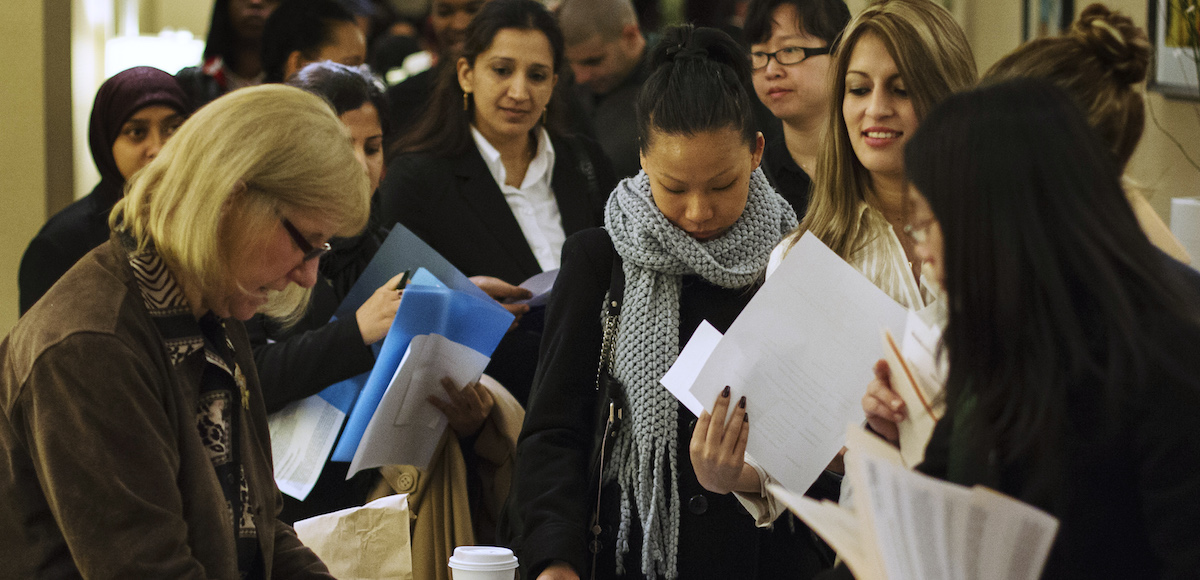

Job seekers adjust their paperwork as they wait in line to attend a job fair in New York February 28, 2013. (Photo: Reuters)
The Labor Department said Friday the U.S. economy lost 33,000 jobs in September and the unemployment rate fell to 4.2%. The median forecast called for 100,000 jobs to be added in September and the unemployment rate to hold steady at 4.4%.
“In September, a sharp employment decline in food services and drinking places and below-trend growth in some other industries likely reflected the impact of Hurricanes Irma and Harvey,” said William J. Wiatrowski, the Acting Commissioner of the Bureau of Labor Statistics (BLS). “The storms caused large-scale evacuations and severe damage to many homes and businesses.”
Unemployment is at the lowest level since February 2001. The labor force participation rate was unchanged at 63.1% and the employment-population ratio increased by 0.3 percentage point to 60.4%.
The steep -103,000 drop in employment in food services and drinking places, as well as slower than usual growth in certain other industries, reflect the impact of Hurricanes Irma and Harvey. Employment in other major industries, including mining, construction, wholesale trade, retail trade, information, and government, showed little change over the month.
The average workweek for all employees on private nonfarm payrolls stayed unchanged at 34.4 hours. In manufacturing, the workweek also was unchanged at 40.7 hours and overtime held firm at 3.3 hours. The average workweek for production and nonsupervisory employees on private nonfarm payrolls was unchanged at 33.6 hours.
In September, average hourly earnings for all employees on private nonfarm payrolls rose by 12 cents to $26.55. The 0.5% gain for wages slightly beat the 0.2% forecast and tied July for the strongest monthly reading on the year.
Over the past 12 months, average hourly earnings have increased by 74 cents, or 2.9%, which is higher than the 2.6% median forecast. In September, average hourly earnings of private-sector production and nonsupervisory employees increased by 9 cents to $22.23.
The most damning journalistic sin committed by the media during the era of Russia collusion…
The first ecological study finds mask mandates were not effective at slowing the spread of…
On "What Are the Odds?" Monday, Robert Barnes and Rich Baris note how big tech…
On "What Are the Odds?" Monday, Robert Barnes and Rich Baris discuss why America First…
Personal income fell $1,516.6 billion (7.1%) in February, roughly the consensus forecast, while consumer spending…
Research finds those previously infected by or vaccinated against SARS-CoV-2 are not at risk of…
This website uses cookies.